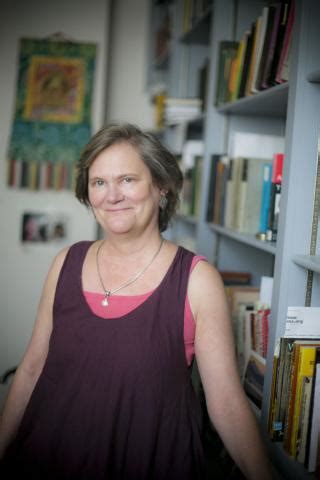A Quote by Elizabeth Bowen
The paradox of romantic love -- that what one possesses, one can no longer desire -- was at work.
Related Quotes
The difference between romantic love and friendship love is that romantic love involves a lot of compromise. It is a very giving type of love. With friendship, you can be a little bit more autonomous. You are not expected to compromise, in the same way. Maybe that's why friendships tend to last longer.
It is easy for desire to be caught like a bird in a net, its wings fouled and twisted, no longer free to cross back and forth between silence and word. Desire may also find itself so amputated by tradition and community that it wanders in a void with nothing to orient it, to shape or discipline it. Desire must find ways to navigate its bitter and sweet paradox: it moves toward but also always through and beyond every object.
When a man and woman are successfully in love, their whole activity is energized and victorious. They walk better, their digestion improves, they think more clearly, their secret worries drop away, the world is fresh and interesting, and they can do more than they dreamed that they could do. In love of this kind sexual intimacy is not the dead end of desire as it is in romantic or promiscuous love, but periodic affirmation of the inward delight of desire pervading an active life.
Many have said much about love, but you will find love itself only if you seek it among the disciples of Christ. For only they have true Love as love's teacher. 'Though I have the gift of prophecy', says St. Paul, 'and know all mysteries and all knowledge? and have no love, it profits me nothing' (I Cor. 13:2-3). He who possesses love possesses God Himself, for 'God is love' (I Jn. 4:8). To Him be glory throughout the ages. Amen.
Love is not selective, desire is selective. In love there are no strangers. When the centre of selfishness is no longer, all desires for pleasure and fear of pain cease; one is no longer interested in being happy; beyond happiness there is pure intensity, inexhaustible energy, the ecstasy of giving from a perennial source.
That "ol' black magic" is a fickle force. The chemistry of romantic love can trigger the chemistry of sexual desire and the fuel of sexual desire can trigger the fuel of romance. This is why it is dangerous to copulate with someone with whom you don't wish to become involved. Although you intend to have casual sex, you might just fall in love.
To be an actor is to be ambiguous in every form, which is a very hard way to live. You represent desire: the desire of the director and the desire of the audience, even if it's a subconscious desire. If a director is to work with you for two months, he must be in love with you in some way or another.






































